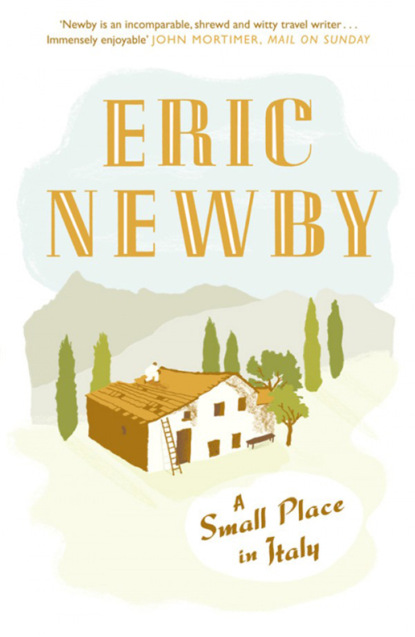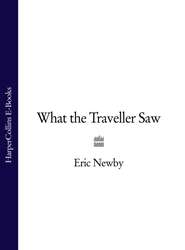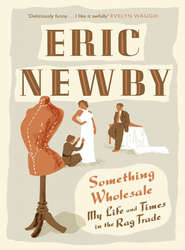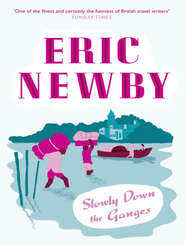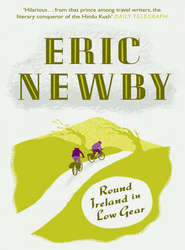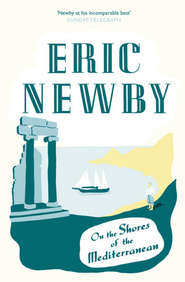По всем вопросам обращайтесь на: info@litportal.ru
(©) 2003-2024.
✖
A Small Place in Italy
Автор
Год написания книги
2018
Настройки чтения
Размер шрифта
Высота строк
Поля
SEVEN (#ulink_2ca7c1b8-855c-5228-9c53-bd04f41a453b)
The following morning, Holy Saturday, the world had a more cheerful aspect – cold, clear and almost cloudless, everything wet and sparkling after the rain.
There were even a few bold, migrant birds, some of which had the temerity to sing, making what would be, if they had any sense, only a brief touchdown in Italy before setting off for countries in higher latitudes whose inhabitants were more friendly to wild birds than the Italians who could only visualize them impaled on skewers and cooked.
Good Friday had been winter, with foul weather, black vestments for the clergy and altars stripped of everything, including the Host.
By comparison Holy Saturday was spring. Even Lent had lost much of its severity, with the clergy in violet and white vestments, white linen cloths spread on the altars in the churches, and grains of fresh incense set fire to by the priests with a flint outside the main door of the church, a fire that would subsequently be used to light the candles inside the building that had previously been extinguished.
We ourselves got up at six o’clock to start mobilizing helpers in the work of reconstructing I Castagni.
We got the keys of the house from Signora Angiolina who was already up long since, happy now that she knew that we were going to be, as she put it, sempre con noi, always with us, using the regal ‘we’, although we had made it clear that the most we could hope for would be a visit two or three times a year, and possibly a flying one while on the way to somewhere else. That is, unless I got the sack, in which case we would probably have to stay for ever.
We were really quite glad that she didn’t offer to come down to the house with us but she did give us some eggs, some green salad, a bottle of wine and a loaf of delicious, newly baked bread.
But before all this we asked what news there was of Attilio, now playing one of his innumerable roles, this one his disappearing-into-thin-air-Attilio-the-Houdini-of-I Castagni act. She said she hadn’t seen him since the previous day, just after midday, when he had set off to take part in the procession, which was why she had had no idea that we had arrived in Fosdinovo. ‘You did well,’ she said, using her immortal phrase, ‘not to have attempted to spend the night in the house in such weather. It might have ended badly.’
‘Today,’ she said, ‘Attilio has gone to do giornata, and he may not be back here now for some days as the farm where he has gone to work is some distance beyond Fosdinovo, at a place called Foce il Cuccù [the Cuckoo’s Mouth], but of course he won’t work on Easter Day.’
Giornata meant that he had gone to work for someone and was being paid on a daily basis, either digging or hoeing or doing some other sort of farm work, or else repairing various agricultural instruments, making new handles for those which were broken, sharpening scythes and doing any other jobs Attilio was capable of performing. These, as we already knew, could be almost anything at all, providing that they weren’t connected with engines, and he would probably even be able to deal with these, if the need arose.
‘Attilio is one of those few people who will do a giornata any more,’ Signora Angiolina said, ‘because the pay is so bad. He should be paid much more. People take advantage of him.’
The most important item of news, however, that Signora Angiolina had to impart was that although Attilio was still sleeping in his little bedroom, and could continue to do so, so far as we were concerned, he had moved out of the kitchen. A neighbouring farmer had offered him the use of the kitchen which had its own water supply on the ground floor of one of his barns, while we were in residence at I Castagni.
Вы ознакомились с фрагментом книги.
Приобретайте полный текст книги у нашего партнера:
Приобретайте полный текст книги у нашего партнера:





